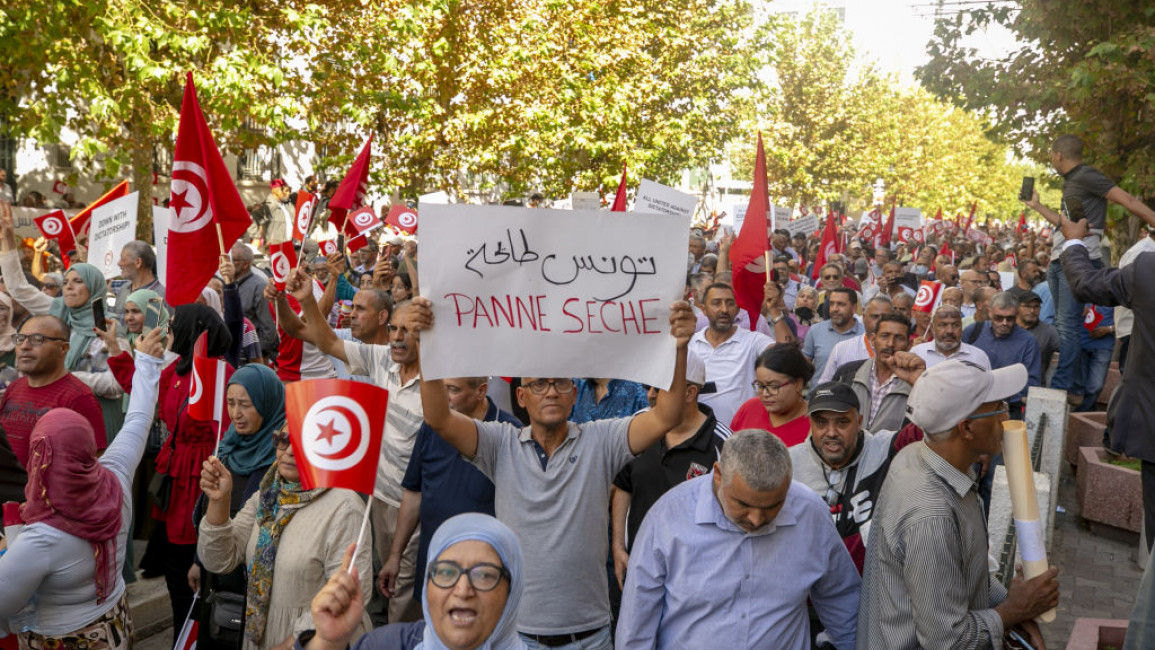Tunisian students to strike after arrests by authorities over online posts on protests
Dozens of Tunisian University students protested Monday the arrest of a classmate over his online posts regarding the recent protests in the North African state.
Gathering in front of the Tunis' first instance court, several members of the Union of Tunisian Students came to support Ahmed Bahaa El-Din Hamada, a student and an activist, who was reportedly 'kidnapped' from a students residence in Sousse, 140 km south of the capital Tunis.
"His computer, mobile phone and books were seized," Rahma El Khashnawi, a member of the General Union of Tunisian Students, told the local radio Mosaique.
The Union also said it will launch a nationwide strike across Tunisian universities in the next few days.
Hamada, a student at the University of Law and Political Science in Sousse and an activist at the Union of Tunisian Students, had created and managed a Facebook page named "Neighbourhood Tadamoun", where he posted daily updates on the night protests that rocked the district last month.
On 14 October, protests erupted in the Tadamon neighbourhood during the funeral of Malek Sellimi - a 24-year-old man who died from injuries sustained during a police chase.
The protests spread from Tadamon to other working-class neighbourhoods in the capital Tunis, with police brutality and economic hardship fueling the people's anger.
Through his Facebook page, Hamada, who grew up in the Tadamon district, shed light on the long-week protests.
The General Union of Tunisian Students said they could not reach Hamada after his arrest and the union believes that his arrest is linked to his online activity.
"There's a political direction that aims to limit criticism and protests and freedom of speech among [Tunisian] youth," Houssem Bougherra, secretary-general of the General Union of Tunisian Students, told the local Radio Shems.
Tunisian officials have yet to address the student's arrest.
The North African country has seen a spike in prosecutions of journalists and activists, including in military courts since Kais Saied seized wide-ranging powers last year.
Rights groups are warning of Saied's increasing use of authoritarian measures - similar to those employed under the ousted regime of Ben Ali.
Tunisia's state of freedom deteriorated from 73 in 2021 to 94 in 2022, according to Reporters without borders (RSF).



